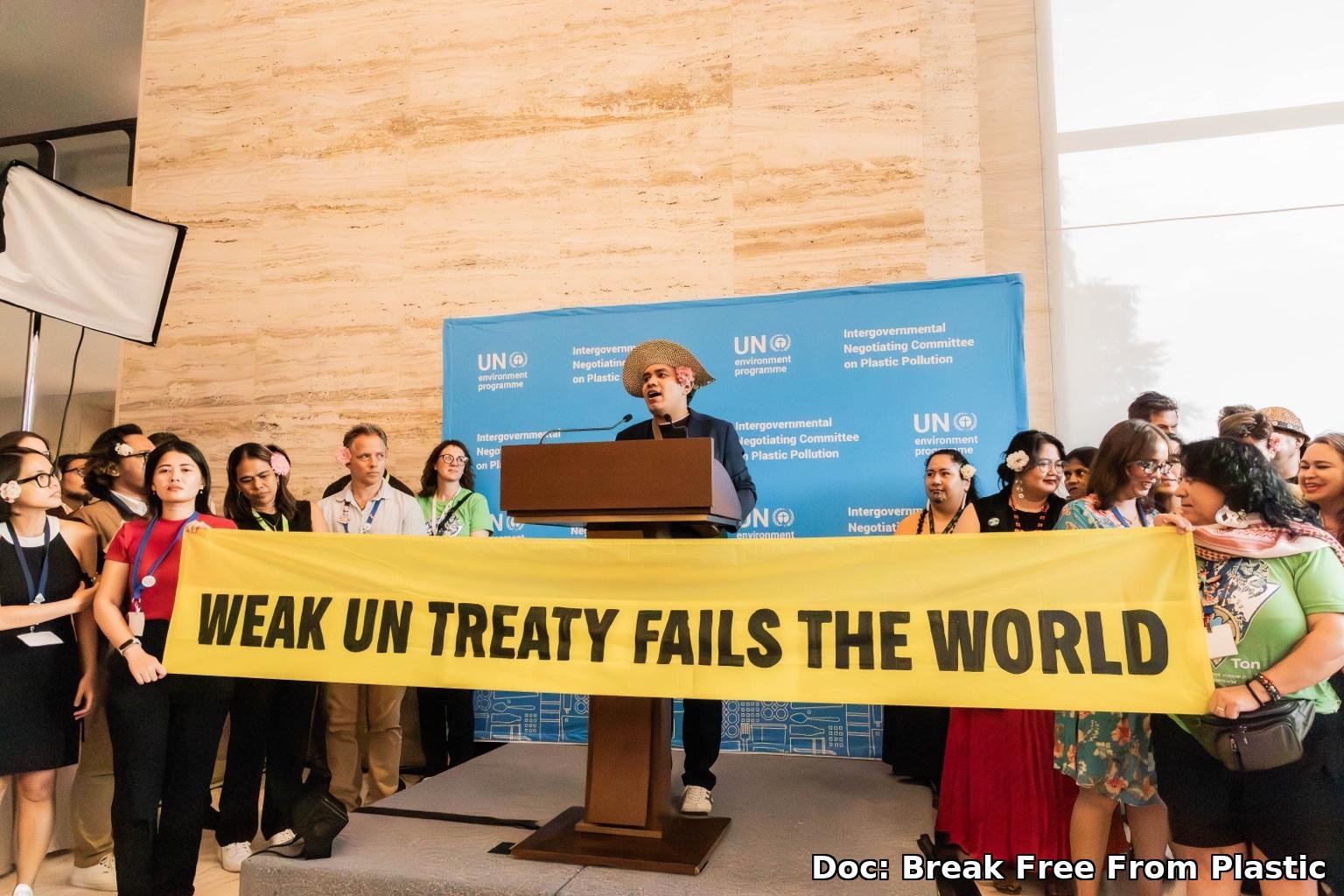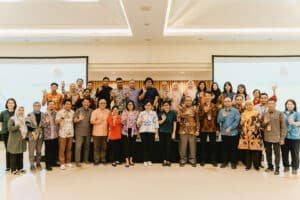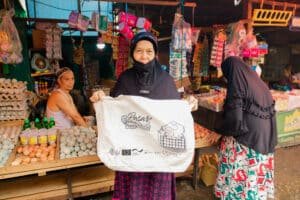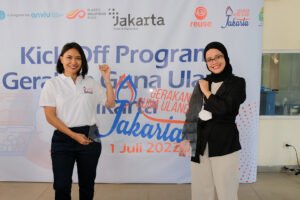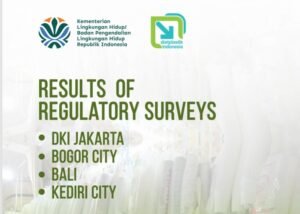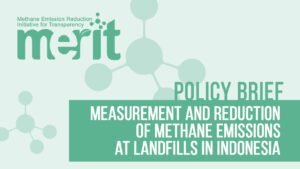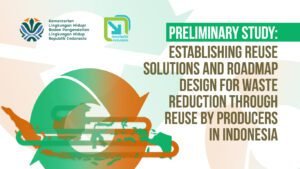Geneva, 15 August 2025 – Hopes for a major breakthrough in the global plastics negotiations (INC-5.2) were dashed this week, as talks in Geneva ended abruptly and without a clear pathway forward. Originally set to conclude on 14 August, the session was unexpectedly extended to the following day for a final plenary. Yet, delegates and observers were caught off guard when a new Chair’s Draft Text was released at the last minute, leaving virtually no time for thorough review before the closing negotiations.
“The latest draft text weakens commitments on upstream plastic waste prevention, particularly the strengthening of reuse and refill systems: key to reducing single-use plastic production,” said Rahyang Nusantara, Deputy Director of Plasticdiet Indonesia, who attended the negotiations in person. “We are concerned the talks are drifting away from the most effective solutions to end the plastic crisis at its root.”
The situation worsened when speaking time for observer groups, including civil society, scientists, and frontline communities most affected by plastic pollution, was cut short. Advocates say this undermines transparency and erodes the legitimacy of a process that had been promised from the outset to be inclusive and open.
What happened in the closing hours of INC-5.2 shows exactly why this treaty process risks failing the people and the planet. Decisions on the future of plastic pollution were made in the dead of night, behind closed doors, and without a clear next step. Countries were forced to choose between two bad options: a weak Chair’s text that barely mentions waste prevention, reuse, and refill; or reverting to an older, bloated draft.
The Chair’s decision to gavel the session to a close and exit the room left no clarity on next steps, no confirmed negotiation text, and no agreed timeline for the process ahead, raising urgent questions about whether the world can still deliver a meaningful plastics treaty.
“If these negotiations fail to provide clarity and leadership, we risk losing a once-in-a-generation opportunity to end plastic pollution,” Rahyang warned. “The lack of transparency and ambition is alarming. We cannot afford a treaty that sidesteps upstream solutions like reuse and refill, or one that ignores the urgent need to cut plastic production. For Indonesia and the Global South, this is not an abstract debate; plastic pollution is already harming communities, ecosystems, and economies. The next session must restore credibility: open, inclusive, and committed to ambitious measures that stop plastic pollution at the source.”
Plasticdiet Indonesia stresses that only with meaningful public participation and visionary leadership can the Global Plastics Treaty become more than just a formal document; it must be an enforceable tool to stop the crisis at its source.
Media Contact:
📧 contact@plasticdiet.id | aguni@plasticdiet.id
📞 +62 811-2441-901
About Plasticdiet Indonesia
A non-profit organization working to end single-use plastics, expand reuse systems in Indonesia, and reduce methane emissions from the waste sector. Since 2013, it has led national advocacy efforts—supporting more than 100 cities to implement plastic bans—while building inclusive solutions such as Plastic-Free Markets and the Reuse Movement. The organization also advances climate action by promoting organic waste management at the source, preventing waste from being mixed or mismanaged. Its mission is to end plastic pollution and cut greenhouse gas emissions by transforming production, consumption, and waste management systems, while fostering cultural change where reuse becomes the norm and local communities lead a just transition to a cleaner, healthier future.

